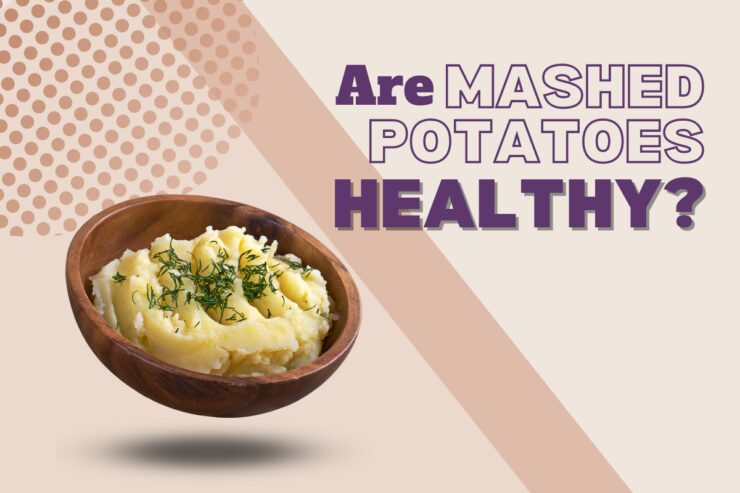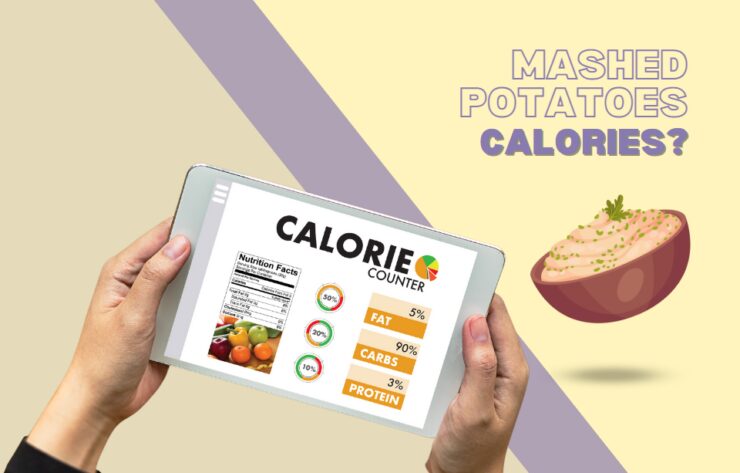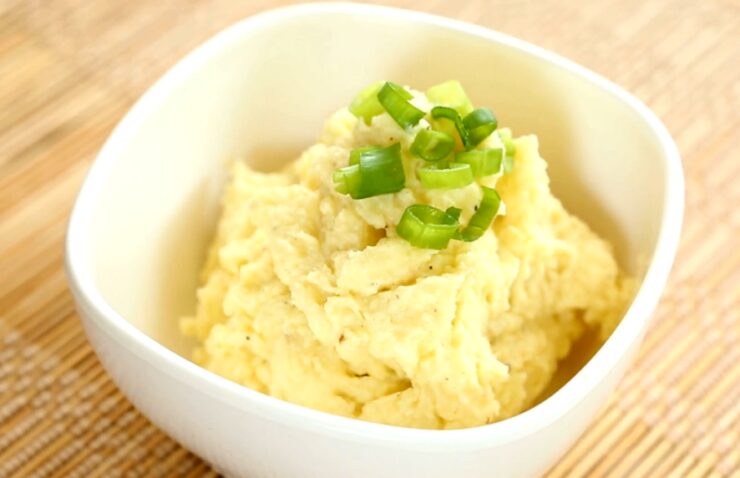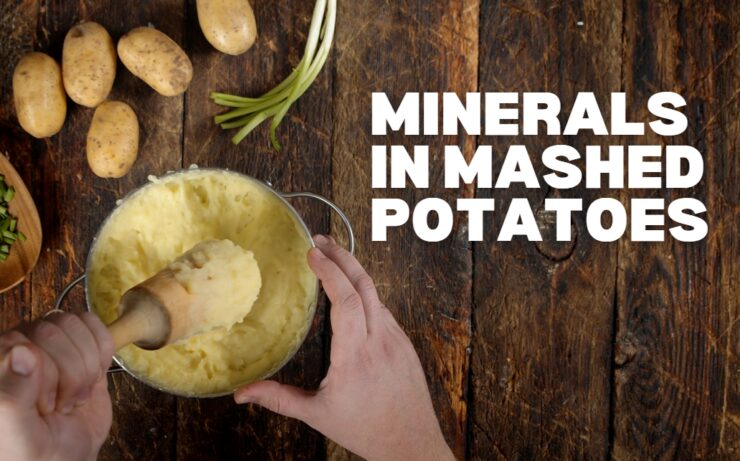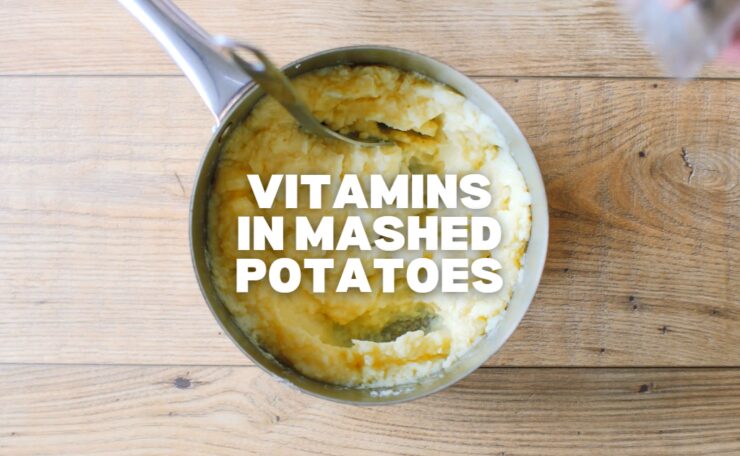If you are wondering are mashed potatoes healthy, the short answer is yes, but in reasonable amounts. The popularity of consumption of potatoes is right up there with rice, wheat, and corn, and with that said, it is normal to wonder whether or not eating them is good for you.
Many people also consider mashed potatoes a comfort food and one of the favorites to add to nutrition. So, the healthiness of this food depends on various factors like how it is prepared, how much you are eating, what you are eating it with, or what exactly you put in the mashed potatoes. Today, we are going to discuss the impact of this food on your body and go in-depth about it. There is a lot to cover, so let us get started.
Contents
How Many Calories Are in Mashed Potatoes?
To calculate the calories in mashed potatoes, we first need to define what ingredients go into them. A standard dish usually contains cooked potatoes, white or yellow butter, milk or cream, and some salt. When you prepare the dish, you start off by boiling or microwaving potatoes until they are soft. Afterward, peel off the skins, chop, mash, and add other ingredients.
As we can see, there is not much to it, and in homemade mashed potatoes serving size, you will get 108 calories. It is important to note that this is only six percent of the daily value in calories for someone on a 2.000-calorie diet. However, chances are that you will likely get accustomed to larger portions or more frequent intake, which can be problematic.
People generally have issues with calculating the correct serving size of their food, and they so often misjudge the calorie intake that it is something we need to take into account. In fact, if you often go to restaurants, there is an even bigger chance that you indulge in larger portions.
Some restaurants report that their servings of homemade mashed potatoes can have roughly 240 calories, and all of that without any gravy. Essentially, the amount you consume largely affects how healthy it is for you to eat mashed potatoes.
What Is the Nutritive Value of Mashed Potatoes?
When it comes to mashed potatoes in your nutrition, one serving offers a very small amount of protein which is about 2 grams, and it comes along with 18 grams of carbohydrates. Of this amount of carbs, roughly 2 grams are from fiber.
If you are on a low-carb diet, subtract the fiber from the total carbs to arrive at the net carbs of the dish. Fiber has many health benefits and makes large contributions to digestive health by keeping your bowel movements regular, which prevents colon diseases.
It is needless to say, the vegetable part of mashed potatoes supports health, but dairy ingredients complicate the dish, especially if you decide to eat larger servings. Butter, milk, or cream add many calories to mashed potatoes, and they add saturated fat to a vegetable that is naturally fat-free.
To put it in perspective, a half-cup of mashed potatoes delivers between 3 and 4 grams of fat, and about a fourth of it comes from saturated fat. This is important because big amounts of saturated fat in the diet contribute to weight gain and may put you at risk of heart disease.
Glycemic Index
The glycemic index is one of the effective ways to measure the impact of food on raised blood sugar after you eat it. The closer the number gets to 100, the higher the impact is on blood sugar levels.
Eating a lot of food with a high glycemic index may increase your risk of type 2 diabetes and weight gain. High levels of blood sugar can also show that high amounts of insulin are released in the bloodstream. This is important because insulin is a storage promoter, and when it is out, insulin promotes fat storage.
Now when it comes to potatoes, researchers have found that boiled red potatoes eaten cold had the lowest glycemic index at 56. On the other hand, instant mashed potatoes and boiled red potatoes had the highest index at 88 and 89, respectively.
Essentially the healthiest option is to eat potatoes when they are pre-cooked, eaten cold, or re-heated since, in that state, they have a lower glycemic index.
Minerals in Mashed Potatoes
Another ingredient that compromises the nutrition of your mashed potatoes is salt, which contains the electrolyte mineral sodium. Whole foods generally offer some sodium, and it is not harmful on its own. However, if you have too much of it in your diet, you are at risk of high blood pressure, heart disease, and stroke.
In case your diet includes a lot of processed food, if you eat at restaurants frequently, or if you simply put too much salt in your foods, you may be getting too much sodium in your diet. For example, a half cup of mashed potatoes delivers around 370 milligrams of sodium, which is 16 percent of the daily value.
If you eat it at the restaurant, the chances are that you will consume even more since some restaurants serve portions that contain up to 540 milligrams of sodium, which is a lot. However, there is a positive about mashed potatoes when it comes to minerals, as the portion also offers a good amount of potassium.
Potassium is another electrolyte mineral that works with sodium to balance your body fluids. A single serving of homemade mashed potatoes delivers 346 milligrams of potassium, which is about 8 percent of your daily requirement. It is preferable to have a ratio of potassium and sodium in your diet, in which you will be getting significantly more potassium.
Vitamins in Mashed Potatoes
Mashed potatoes are rich in vitamin A and several B vitamins. In a single serving, you will get six percent of the vitamin A you require on a daily basis. Vitamin A is an antioxidant nutrient, and it supports your eye health and boosts immunity while it also plays an important role in the function of your vital organs.
You also get vitamins B3 and B6 in a serving of mashed potatoes, and you get 8 and 9 percent, respectively. These vitamins work together to aid you in metabolizing food into energy, among other functions.
These are important vitamins since a deficiency of B3 or niacin has some connections with Parkinson’s disease, while a lack of B6 may contribute to cognitive decline.
Another important vitamin that a serving of mashed potatoes delivers is vitamin K. You get about 6 percent of the daily value in a portion. This vitamin supports healthy bones and blood clotting, while its deficiency, although rare, can cause bleeding and bruising.
Bottom Line – Are Mashed Potatoes Healthy?
Essentially, there is no reason to give up on mashed potatoes if you limit your daily intake and eat them in reasonable amounts. Make the dish yourself instead of ordering it when going out since you can prepare a much healthier variation at home with the knowledge we shared in this article.
The best course of action is to explore the different options with potatoes. Try eating them in different ways and making them as healthy as possible. By doing so, you will not have to denounce them in your diet, and you will be able to maintain the health of your body.

Steve is a certified trainer with more than 10 years of training experience and he holds a Master’s in Sports Science. Prior to Boston Rock Gym, Steve worked for two years as a personal trainer.

